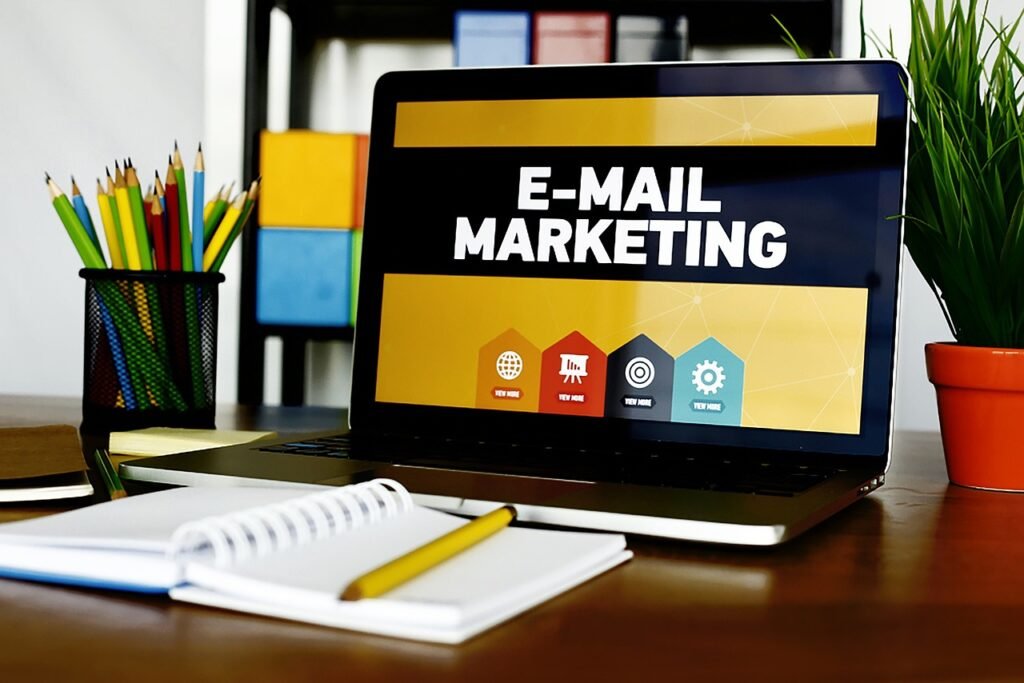Digital Marketing Strategy: Driving Success in the Digital Age
Author: Sabyasachi Moulik

In today’s digital age, a robust digital marketing strategy is essential for businesses to thrive and succeed. Digital marketing encompasses a wide range of tactics and channels that allow businesses to reach and engage with their target audience effectively. In this article, we will explore the key elements of a successful digital marketing strategy and discuss how businesses can leverage digital platforms to drive growth and achieve their marketing objectives.
Table of Contents
- Introduction: The Power of Digital Marketing
- Defining Marketing Objectives and Target Audience
- Conducting Market Research and Competitor Analysis
- Developing a Comprehensive Digital Marketing Plan
- Building an Engaging Website and Optimizing User Experience
- Search Engine Optimization (SEO) and Content Marketing
- Pay-Per-Click (PPC) Advertising and Search Engine Marketing (SEM)
- Social Media Marketing and Influencer Collaborations
- Email Marketing and Marketing Automation
- Video Marketing and Visual Content Creation
- Mobile Marketing and Optimization
- Data Analytics and Performance Measurement
- Continuous Testing, Optimization, and Adaptation
- Integration with Offline Marketing Efforts
- Conclusion
1. Introduction: The Power of Digital Marketing
Digital marketing has revolutionized the way businesses connect with their audience. It offers a vast array of tools and platforms that enable precise targeting, real-time engagement, and measurable results. A well-crafted digital marketing strategy helps businesses expand their reach, increase brand awareness, drive traffic, generate leads, and ultimately, boost conversions and revenue.
2. Defining Marketing Objectives and Target Audience
Before diving into digital marketing tactics, businesses must clearly define their marketing objectives and identify their target audience. Setting specific, measurable, achievable, relevant, and time-bound (SMART) goals ensures clarity and focus. Understanding the target audience’s demographics, preferences, and behaviors helps tailor marketing messages and select the most effective digital channels.
3. Conducting Market Research and Competitor Analysis
Market research and competitor analysis provide valuable insights into industry trends, customer needs, and competitive landscape. Businesses should gather data on their target market’s pain points, interests, and online behavior. Analyzing competitor strategies helps identify opportunities, differentiate the brand, and refine the digital marketing approach.
4. Developing a Comprehensive Digital Marketing Plan
A comprehensive digital marketing plan outlines the specific tactics and channels that will be utilized to achieve marketing objectives. It includes a content calendar, budget allocation, timeline, and key performance indicators (KPIs). The plan should align with the overall business goals and consider the strengths and limitations of the brand.
5. Building an Engaging Website and Optimizing User Experience
A business’s website serves as the central hub for its digital marketing efforts. It should be visually appealing, user-friendly, and optimized for both desktop and mobile devices. A seamless user experience, fast page loading times, intuitive navigation, and clear call-to-actions are crucial to keep visitors engaged and encourage conversions.
6. Search Engine Optimization (SEO) and Content Marketing
Search Engine Optimization (SEO) is the practice of optimizing a website to rank higher in search engine results. Content marketing involves creating valuable and relevant content that attracts and engages the target audience. By incorporating SEO best practices, such as keyword research, on-page optimization, and link building, businesses can improve their visibility in search engines and drive organic traffic.
7. Pay-Per-Click (PPC) Advertising and Search Engine Marketing (SEM)
Pay-Per-Click (PPC) advertising and Search Engine Marketing (SEM) allow businesses to display targeted ads in search engine results pages. By bidding on relevant keywords, businesses can drive traffic to their website and pay only when a user clicks on their ad. Strategic campaign planning, ad copy optimization, and continuous monitoring are essential for maximizing ROI.
8. Social Media Marketing and Influencer Collaborations
Social media platforms provide a powerful avenue for businesses to connect with their audience, build brand awareness, and foster customer engagement. Through social media marketing, businesses can create compelling content, engage in conversations, run targeted ad campaigns, and collaborate with influencers to amplify their reach and credibility.
9. Email Marketing and Marketing Automation
Email marketing remains an effective tool for nurturing leads, driving conversions, and building customer loyalty. Businesses can segment their email list based on customer preferences and behavior, personalize emails, and automate campaigns to deliver timely and relevant content. Marketing automation tools streamline processes and improve efficiency.
10. Video Marketing and Visual Content Creation
Video marketing has become increasingly popular due to its engaging nature and high consumption rates. Businesses can leverage video content to tell compelling stories, demonstrate products, provide tutorials, and connect with their audience on platforms like YouTube and social media. Visual content creation, including infographics and images, also enhances brand communication and engagement.
11. Mobile Marketing and Optimization
With the widespread use of smartphones, businesses must optimize their digital marketing efforts for mobile devices. Mobile marketing includes tactics like mobile-friendly website design, mobile apps, SMS marketing, and location-based targeting. Ensuring a seamless mobile experience is vital for capturing the attention of on-the-go consumers.
12. Data Analytics and Performance Measurement
Data analytics plays a crucial role in digital marketing strategy. By leveraging tools like Google Analytics, businesses can track website traffic, user behavior, conversion rates, and other valuable metrics. Analyzing data helps identify trends, measure campaign performance, and make data-driven decisions for optimization and future planning.
13. Continuous Testing, Optimization, and Adaptation
Digital marketing is an iterative process that requires constant testing, optimization, and adaptation. A/B testing, heat mapping, and user feedback help identify areas for improvement. By analyzing data, tweaking strategies, and staying updated with industry changes, businesses can refine their approach and maximize results.
14. Integration with Offline Marketing Efforts
Digital marketing should be integrated with offline marketing efforts to create a cohesive brand experience. Consistency in messaging, branding, and promotions across online and offline channels strengthens brand identity and increases brand recall. Businesses should leverage digital platforms to amplify offline campaigns and vice versa.
15. Conclusion
A well-executed digital marketing strategy can propel a business towards success in the digital age. By defining marketing objectives, understanding the target audience, leveraging various digital channels, and continuously optimizing efforts, businesses can reach and engage with their audience effectively, drive growth, and achieve their marketing goals.
FAQs (Frequently Asked Questions)
1. What is the importance of digital marketing in today’s business landscape?
Digital marketing is crucial in today’s business landscape as it allows businesses to reach a wider audience, increase brand visibility, generate leads, and drive conversions. It offers targeted and measurable strategies that deliver a higher return on investment compared to traditional marketing methods.
2. How can businesses measure the success of their digital marketing efforts?
Businesses can measure the success of their digital marketing efforts through various key performance indicators (KPIs) such as website traffic, conversion rates, click-through rates (CTR), engagement metrics, social media followers, and revenue generated. Data analytics tools provide insights into campaign performance and help identify areas for improvement.
3. Which digital marketing channels are most effective for small businesses?
The effectiveness of digital marketing channels can vary depending on the nature of the business and its target audience. However, social media marketing, content marketing, email marketing, and local SEO are often effective channels for small businesses due to their cost-effectiveness and ability to target specific demographics.
4. How important is content creation in digital marketing?
Content creation is fundamental to digital marketing as it helps businesses attract, engage, and educate their target audience. High-quality and relevant content positions businesses as industry leaders, improves search engine visibility, and drives organic traffic. Content can take various forms, including blog posts, videos, infographics, eBooks, and social media posts.
5. How often should a business review and update its digital marketing strategy?
Businesses should review and update their digital marketing strategy regularly to align with changing consumer behavior, industry trends, and business goals. It is recommended to conduct quarterly or annual reviews and make adjustments based on performance data and market dynamics.
Articles
-
 The Old Money Trend: Timeless Elegance Reimagined
The Old Money Trend: Timeless Elegance Reimagined -
 Brand Manager - The Importance of the Role and Why So Many Companies Are Not Getting It Right
Brand Manager - The Importance of the Role and Why So Many Companies Are Not Getting It Right -
 Branding: Building a Lasting Impression
Branding: Building a Lasting Impression -
 Brand Equity: Building Long-Term Value
Brand Equity: Building Long-Term Value -
 Brand Management: Nurturing and Sustaining Brand Success
Brand Management: Nurturing and Sustaining Brand Success -
 Digital Marketing Strategy: Driving Success in the Digital Age
Digital Marketing Strategy: Driving Success in the Digital Age -
 Email Marketing: Driving Engagement and Conversions
Email Marketing: Driving Engagement and Conversions -
 SEO in Digital Marketing: Unlocking Organic Growth and Visibility
SEO in Digital Marketing: Unlocking Organic Growth and Visibility -
 Personal Branding: Unleashing the Power Within
Personal Branding: Unleashing the Power Within -
 Brand Strategy: Building a Strong Foundation for Success
Brand Strategy: Building a Strong Foundation for Success -
 Brand Positioning: Creating a Strong Market Presence
Brand Positioning: Creating a Strong Market Presence
Services Offered:
1. Comprehensive Brand Strategy
2. SEO, SEM & Content Strategy
3. Email Marketing
Meet Him:
I am the founder of a digital artisanal brand called The Connoisseur. Our brand aims to seamlessly connect individuals through technology and design, facilitating the exchange of exquisite art and art-inspired objects. Through our platform, we not only support the creative community but also educate our audience through engaging editorial content on topics spanning decor, fashion, art, and lifestyle.
With a master’s degree in Engineering with Management from King’s College London, and extensive experience in the startup ecosystem locally and globally, I bring a wealth of knowledge to the table. Whether you require guidance in brand strategy, Ecommerce, Luxury, Digital Marketing, or User Experience design (UX), I am here to offer valuable insights. Don’t hesitate to schedule a consultation today and let’s discuss how I can assist you.

Entrepreneur & Brand Consultant
If you found the article informative then please do share it with your network
Contact form
SM
Navigation
Get in touch
New Delhi
Email: contact@sabyasachi.world












